BLUTAN
atment of various kinds of wounds. It favors the formation of granulation tissue. It is used as a prophylactic in navel disinfection. It helps in the cicatrization of minor wounds. Tannic acid, also known as tannin or galotannic acid, is obtained from certain oak tree nuts (genus Quercus, which has more than 300 species). Apart from being used as an astringent and cicatrizing agent, it is also found in the formulation of medications used for the treatment of burns. It also has an antidiarrheal effect. Pine oil is obtained from Pinus palustris and it is a disinfectant, solvent and deodorant agent. Alcamphor comes from the alcamphor tree (Cinnamomum camphora) which grows in China, Java, Sumatra, Japan and Brazil. Its important effects include itching elimination, wound cicatrization and insect repellent. Propylene glycol (also known as propanodiol) inhibits infection fermentation and attacks fungus formation. It also has moisturizing properties. Phenol is included in the formula due to its disinfectant and antipruritic properties.
BLUTAN DOSAGE:
Apply twice a day after cleaning the wound with water and neutral soap.
ADMINISTRATION ROUTE:
External (topical) administration.
BLUTAN WARNINGS:
Keep in a dry and cool place. Do not expose to light. Keep out of the reach of children
BLUTAN FORMULA:
Every 100 ml contains:
Tannic acid………………………………………………………………….. … 4.5 g
Pine oil………………………………………………………………………… 0.56 g
Essential oils…………………………………………………………………. 0.48 g
Natural alcamphor……………………………………………………………. 2.3 g
Methyl-rosaline chlorhydrate…………………………………………….. 0.63 g
Phenol U.S.P……………………………………………………………………… 2 g
Propylene glycol…………………………………………………………………. 5 g
Isopropyl alcohol…………………………………………………………….. 45.5 g
Distilled water q.s………………………………………………………….. 100 ml

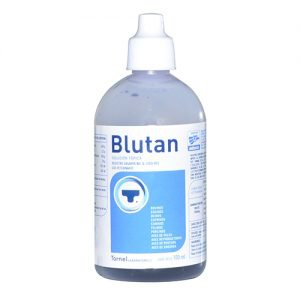
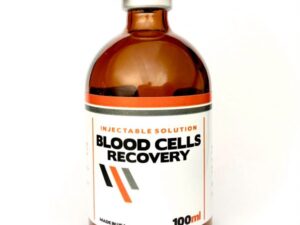
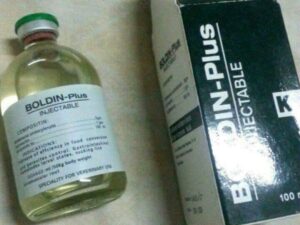
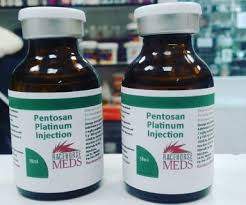
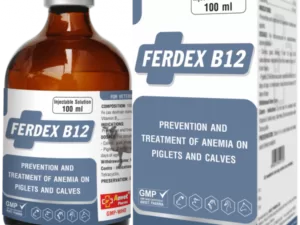
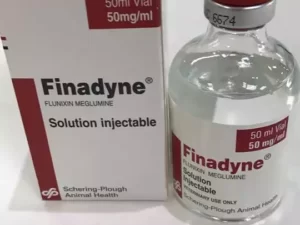
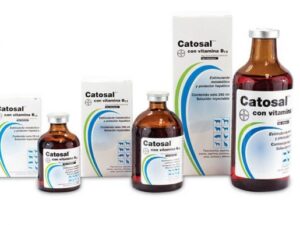
Reviews
There are no reviews yet.